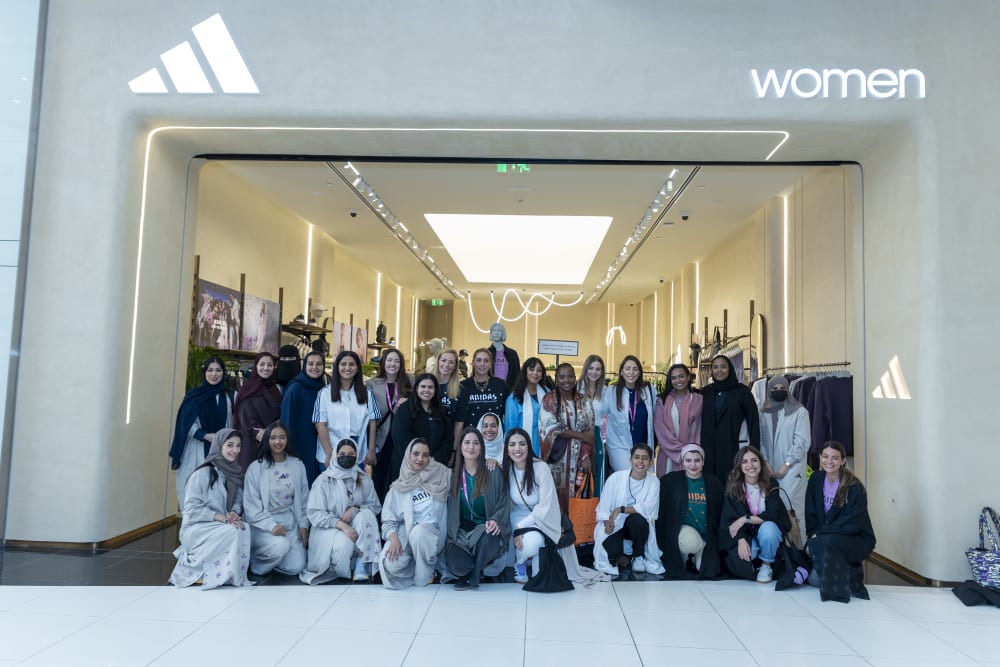
My Gender Equity Journey Through a Career in Sport
As a former professional beach volleyball player, sport has been integral to my life since childhood.

Growing up in Brazil, a country with a deep-rooted passion for football, I was significantly influenced by the sporting culture. From an early age, I participated in various sports and cheered for my favorite football team, Flamengo, alongside my family.
I loved playing football at school, but there were limited opportunities for girls at that time. It's interesting to reflect on how, back then, questions about the lack of access to football for girls didn’t even occur to me or my family. It wasn’t a pressing issue; I was a child brimming with energy and often played alongside the boys.
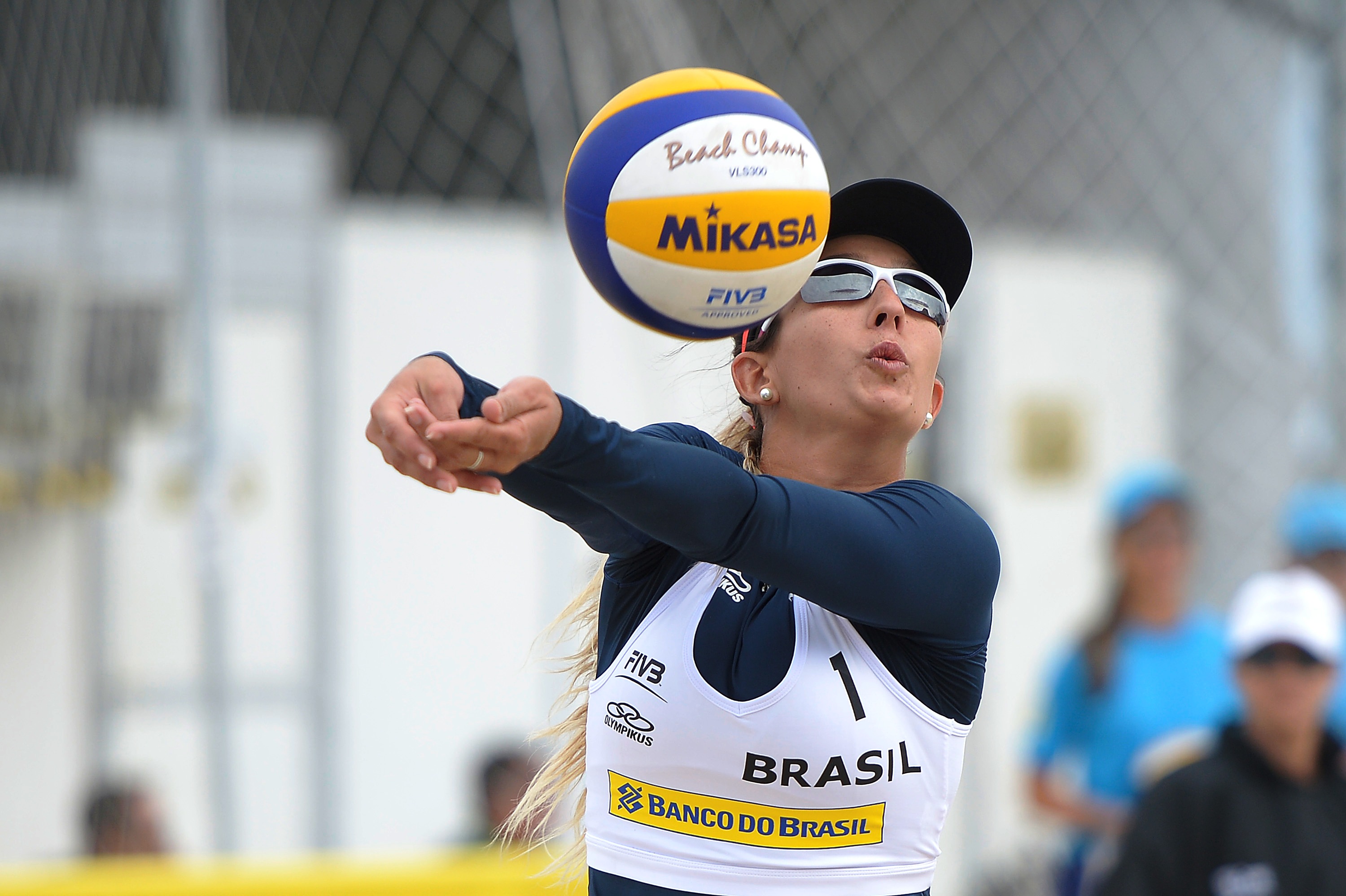
Nevertheless, I sensed that it was only a matter of time before I would find myself getting more involved in competitive sport. That’s when volleyball came into my life. An opportunity arose and I quickly fell in love with the sport. I started with indoor volleyball, and by the time I was 17, I discovered beach volleyball, which became my true passion.
In Brazil, sport can open a pathway to a better life, but reaching the highest level is nearly impossible without sponsorship. I feel privileged to have come from a supportive family that enabled me to pursue my volleyball career without facing significant financial barriers, and my parents' encouragement was crucial in my early journey.
I take immense pride in the path I've traveled, my coaches, and my teammates; volleyball has truly shaped who I am today. But when I reflect on my experiences, I’m struck by the societal norms that perpetuated gender disparities in sports without us realizing it.
The need for change both on and off the court
Today, we challenge why women are required to wear tops and bikinis while men can opt for shorts and shirts. While it may seem suitable to wear bikinis at the beach in Rio de Janeiro, as a 17-year-old girl I was largely unaware of how my body was sexualized by onlookers, photographers, and television audiences. Had I been more aware of this during my youth, I might have joined the recent protests regarding uniforms in women's sports.
I can recall the uncomfortable comments that sexualized my body while I was playing. I saw photos of myself on websites emphasizing my physical features, yet at that time, it appeared so normalized that even my parents likely didn’t question it. I remember a moment when a spectator told me he loved watching beach volleyball but only attended matches to see the women for their "beautiful bodies." This is disheartening; we are more than just bodies in bikinis.


Another uncomfortable memory involves dealing with my period while competing. Wearing bikinis and darting from match to match, I worried about managing my menstrual cycle. Knowing that other girls faced embarrassing situations on the court due to their periods was frustrating, but there was clearly a lack of awareness on all sides.
Despite these challenges, I’ve observed a positive shift in society. Some of my volleyball peers have become advocates for meaningful change, raising their voices to empower women in sports.
In Brazil, women athletes advocate for policies that support mothers returning from parental leave. Previously, athletes who became mothers faced significant setbacks in their rankings, which made it challenging for them to regain their previous positions. I witnessed changes that address these inequities thanks to the efforts of dedicated athletes and thoughtful leaders.
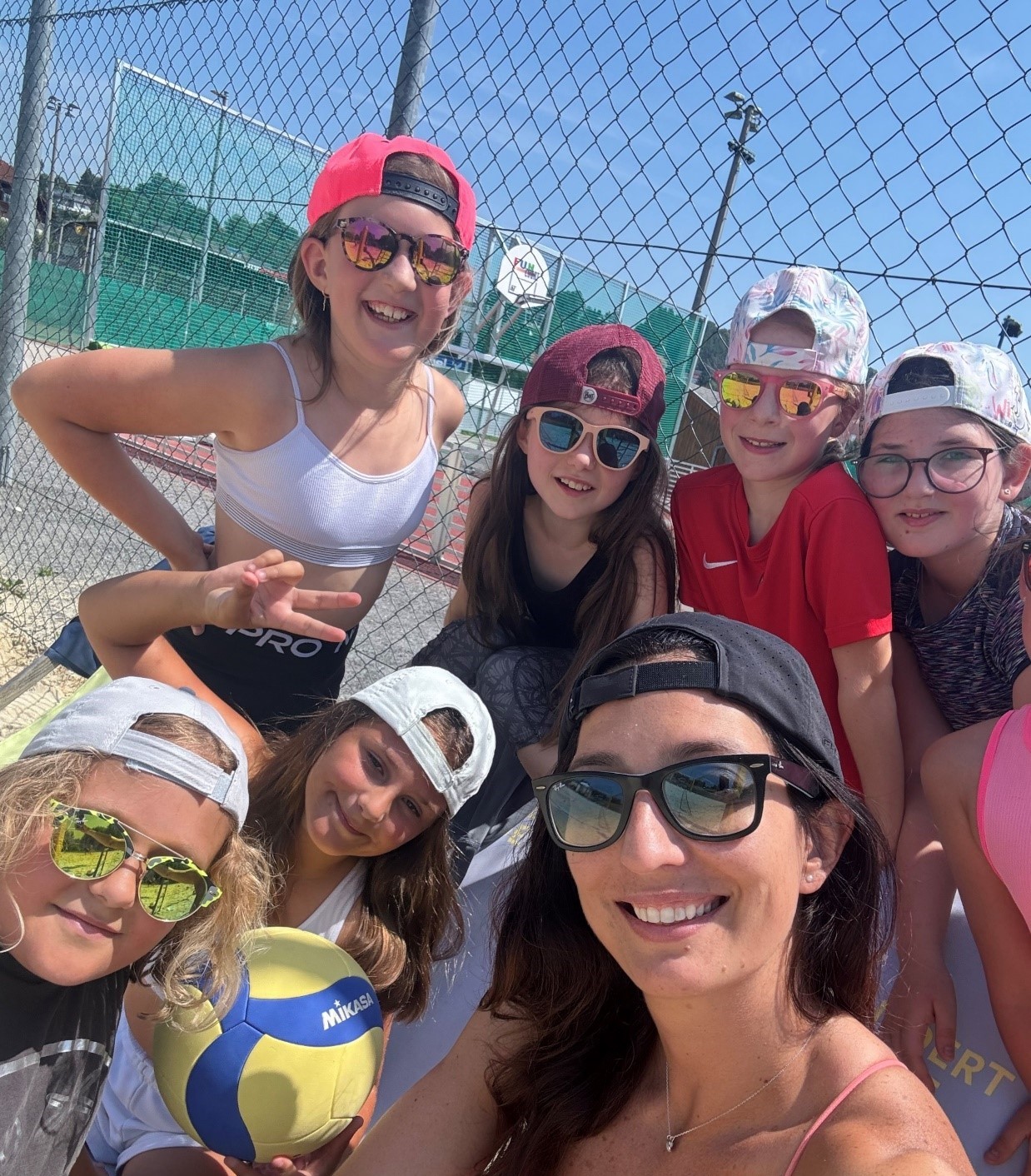
Through awareness and vocal advocacy, change is occurring, albeit gradually. While challenges remain in other sports, beach volleyball offers some positive aspects such as equal prize money for men and women, substantial sponsorships, and numerous tournaments to advance careers. Having strong role models and visionary leaders in the sport and its federations has contributed to growth. I feel fortunate that, despite societal barriers, volleyball has continued to thrive.
I take pride in the International Volleyball Federation (FIVB), which has emerged as a powerful catalyst for change. By bringing volleyball to underserved countries and regions, the FIVB not only promotes athletic participation, but also transforms lives by enhancing access to basic needs and fostering community development through the power of sports. Recognizing the positive benefits of sport and holding our leaders accountable will guide us toward breaking barriers for women and girls.
From the court to the sidelines
When I retired from my playing career, I embraced the opportunity to become a volleyball coach. This experience has greatly enriched my understanding of the vital role that coaches play in shaping athletes’ lives and fostering their growth.
One observation I've made is the significant presence of men coaches leading women’s teams. While many of these coaches are deeply committed to empowering women athletes, there can be instances where unintentional biases arise. For example, as a teenager, I often encountered comments like: “Hit the ball with more attitude, like a man.” Such statements, though likely not intended to harm, can reinforce damaging stereotypes and create a culture of comparison that hinder the confidence of women athletes.


It’s essential to recognize that the journey toward fostering inclusivity in sports is a shared responsibility. By raising awareness among coaches of all genders about the unique challenges faced by women athletes, we can create a more supportive environment that empowers young women in sports. Together, we can cultivate a culture that values and uplifts all athletes, ensuring that everyone has the opportunity to thrive.
When I became a coach and had the chance to lead a men's team in the Bundesliga in Austria, it was the first time a woman had held that position. This experience exposed me to the challenges of being the only woman in the room, showing me the varying levels of understanding among men players regarding a woman’s role as a leader. Despite these challenges, I realized the power I held in my position as a role model for young girls in the club. Mothers approached me, as did women athletes from other teams, drawn to my presence as an inspiration.
While coaching young girls in the same club, I made a concerted effort to empower them, offering words of encouragement to counter the self-doubt they often expressed. As a coach, it was my responsibility to change the mindset shaped by societal norms and upbringing. My awareness about these issues deepened as a coach, emphasizing the profound impact I can have on encouraging young girls to continue their engagement in sports.
Driving impact through the business world
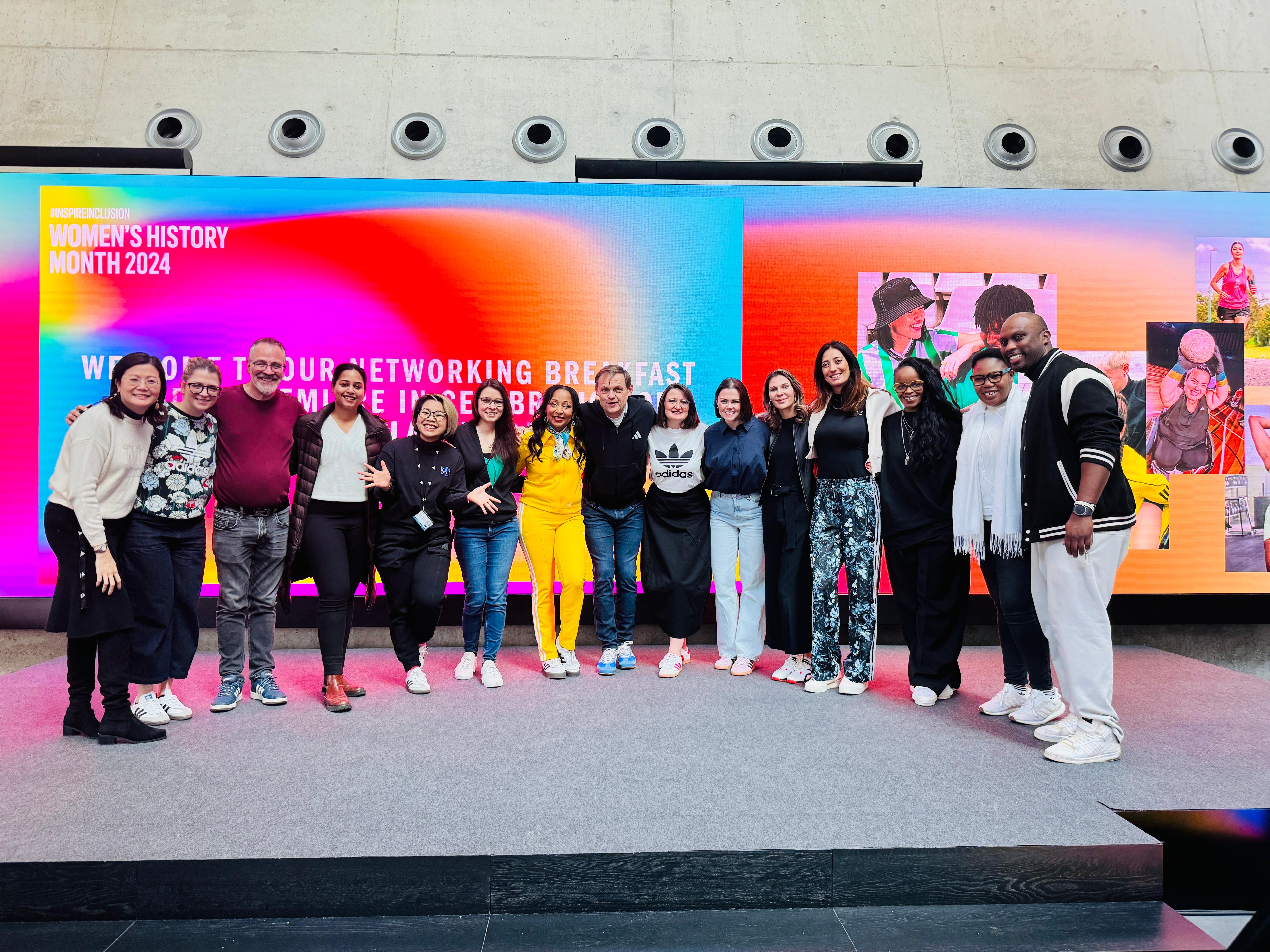
Today, I am the Global Manager of Diversity, Equity, and Inclusion (DEI) at adidas. My experiences in facing barriers within the sporting world have proven invaluable in my transition to this role.
Sport has instilled numerous values in me, and observing the transformative effects of sport in diverse communities has deeply inspired me. I take pride in witnessing changes within organizational structures, recognizing how they influence our workforce and the broader sports community. I am passionate about supporting our brand in developing inclusive solutions that resonate with my values and those of athletes who champion equity in sports.
Throughout my journey, I have come to understand the immense power of sports and the sports industry to effect change. While we may be unable to alter political landscapes, we can drive progress and foster unity. I am honored to be part of this change with adidas being part of the DEI team, where through our strategy we are working to create a safe environment and a culture where everyone feels included.
It is also inspiring to be part of a company’s commitment to transforming lives through sports that drives other organizations to take action toward equal opportunities. Witnessing the establishment of the adidas Foundation, along with initiatives like the adidas Breaking Barriers Project and the support of various NGOs rekindles the hope I felt as a young girl dreaming of a better future.
The latest Breaking Barriers Research Paper, Beyond Representation: Exploring Comprehensive Gender-Inclusive Approaches to Elevate Women in Professional Sports, aims to advance the dialogue even further.
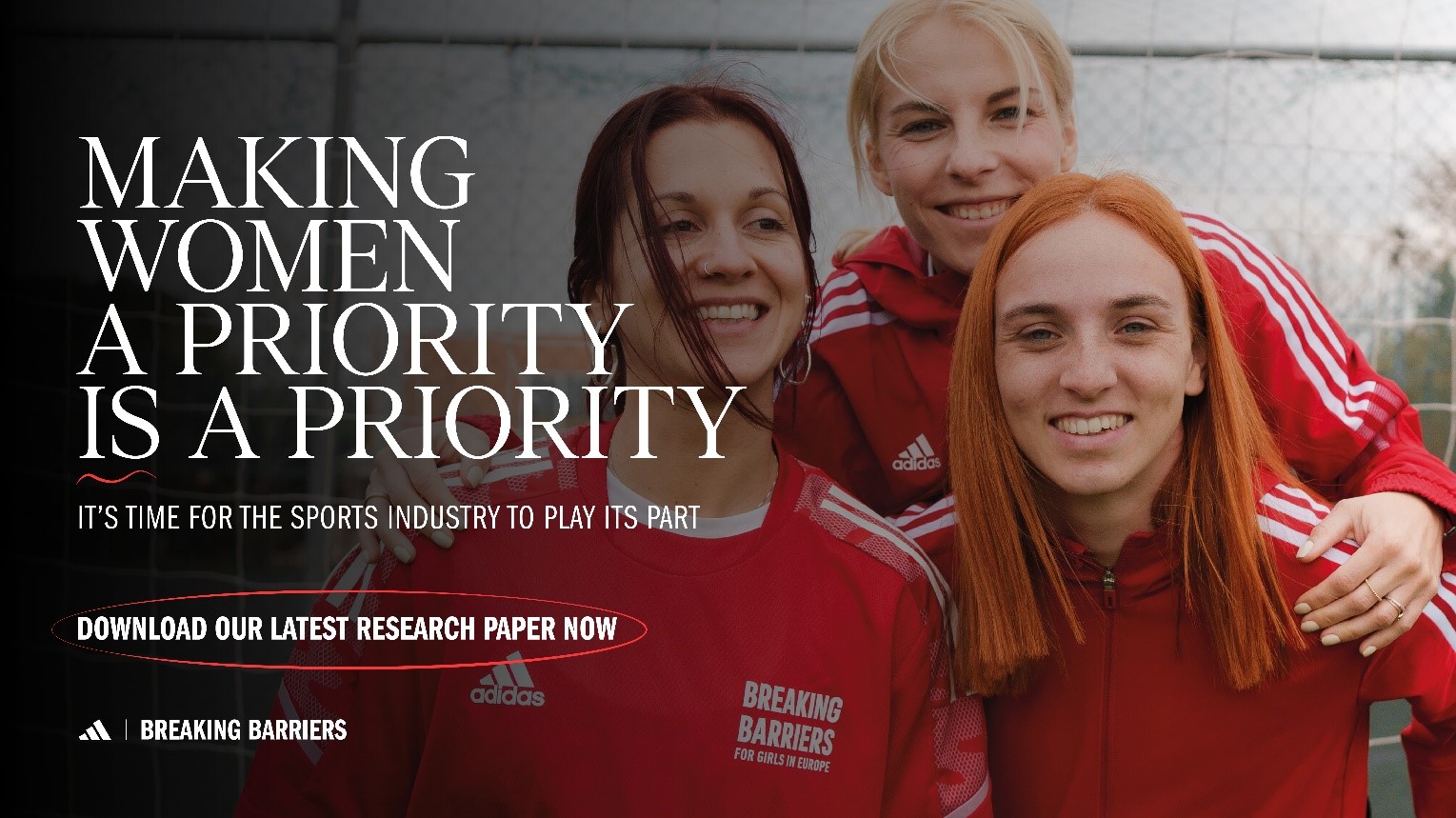
Download the full report to dive deeper into our research and discover how you can help make sport equal.
This report outlines critical opportunities to uplift women in sport, while advocating for necessary policy changes. It highlights the unique needs of women, incorporating gender-sensitive practices, promoting career and leadership opportunities, ensuring equitable media coverage, and equalizing investments, pay, and prize money.
This research, conducted by Women Win in collaboration with Common Goal and 17 Sport, reflects the dedication of a diverse team striving for a more equitable landscape in sports.
I had the privilege of reviewing this paper and sharing my insights during a recent roundtable webinar with the adidas Breaking Barriers Project team. As an athlete, coach, and now the adidas Global DEI Manager, I cannot overemphasize the importance of having such discussions within the industry today.
In an ideal world, I envision it being just as seamless to recognize and celebrate women athletes, leaders, and icons as it is for their men counterparts. Together, we can create this environment of support and visibility.
Let’s continue working together to build that future. Let’s break barriers.




